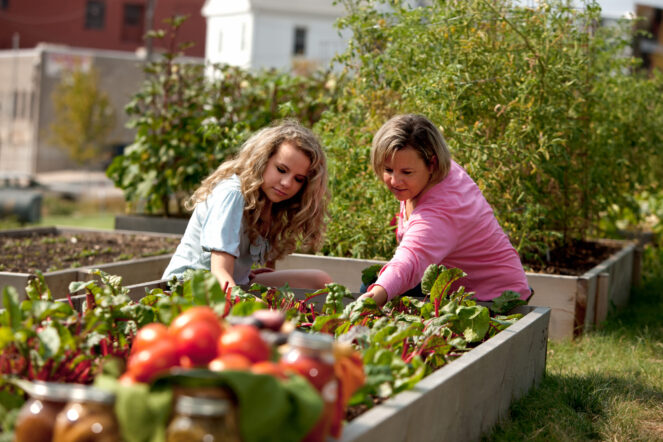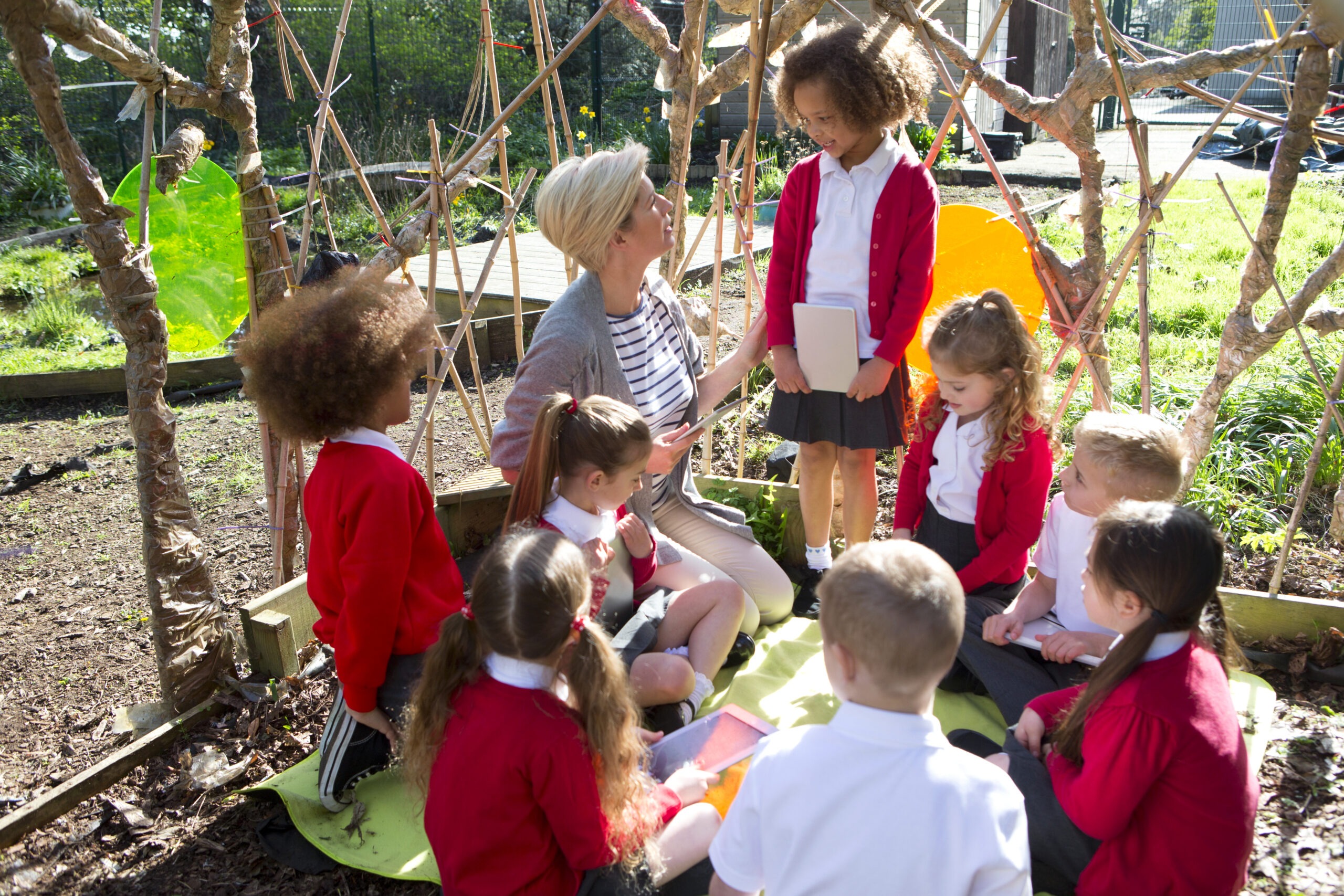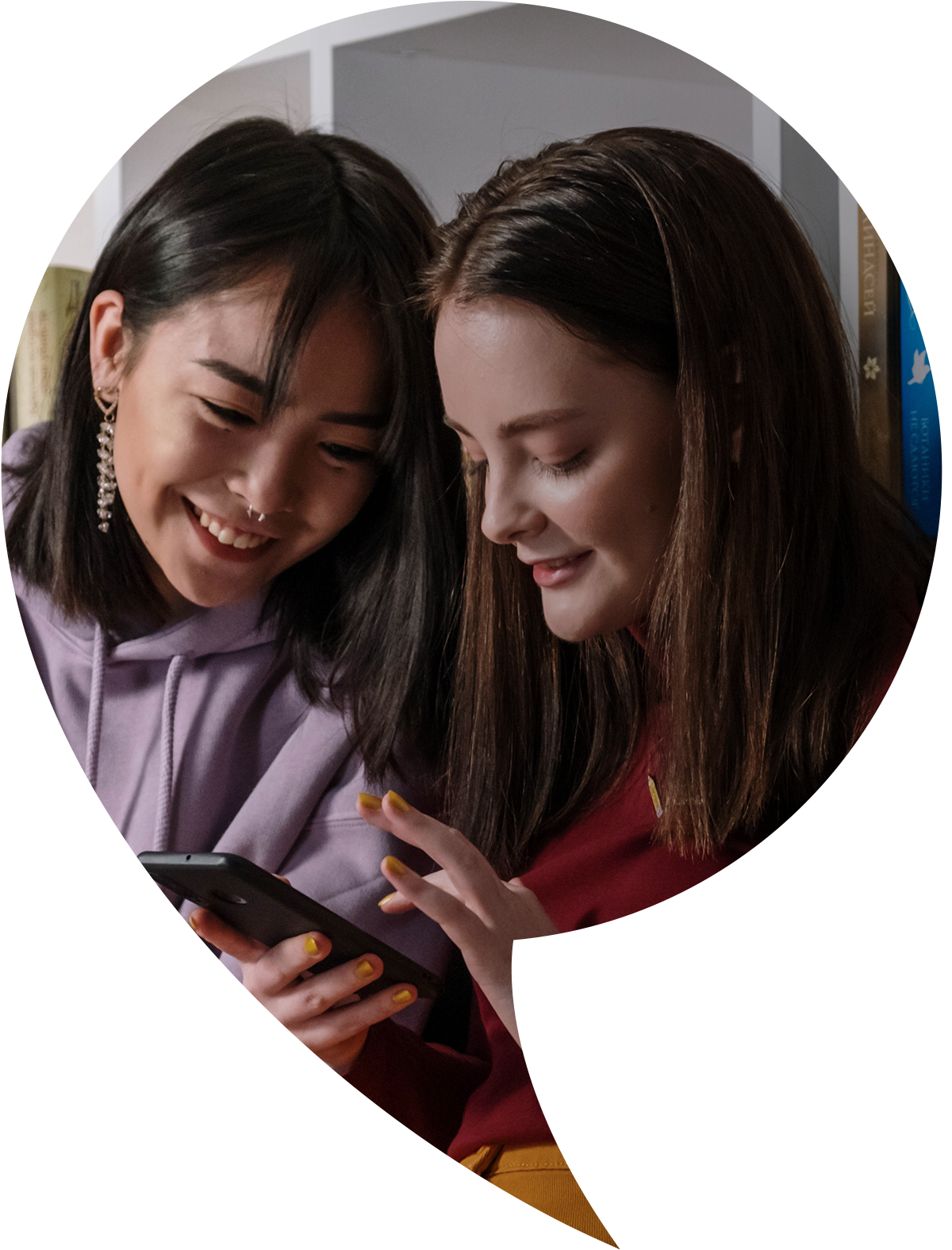We’re proud to be participating in Neurodiversity Celebration Week 2025!
Founded by Siena Castellon in 2018, Neurodiversity Celebration Week is a worldwide initiative that challenges stereotypes and misconceptions about neurological differences. It aims to transform how neurodivergent individuals are perceived and supported by providing schools, universities, organisations, and others around the world with the opportunity to recognise the many skills and talents of neurodivergent individuals, while creating more inclusive and equitable cultures that celebrate differences and empower every individual.

Eikon support for Neurodivergent children and their families
Our Eikon team of Emotional Wellbeing Practitioners (Neurodevelopmental Specialism) help neurodivergent children and young people, whether they have a formal diagnosis or not. This includes support for their parents or carers and education professionals.
One of our programmes, named Making Links, is aimed at helping neurodivergent children develop confidence when interacting with others, making new connections and developing their understanding and acceptance of their own and each other’s needs. Small groups of eight to 11-year-olds gather to meet new peers with similar needs and take part in a range of child-led, often sensory activities ranging from baking to slime making.
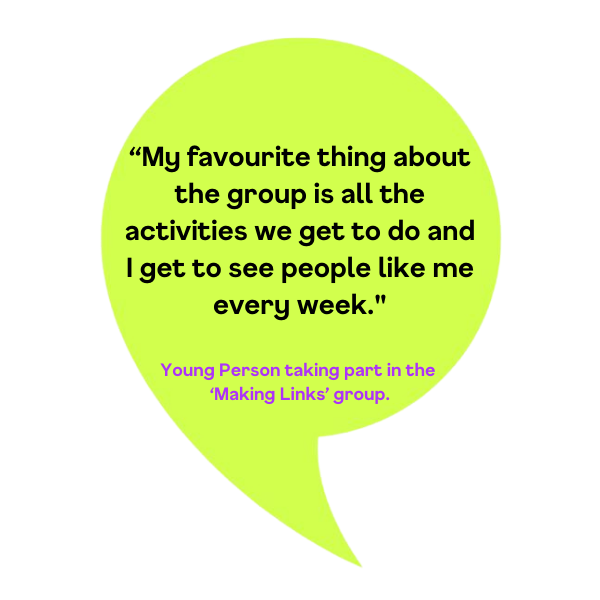
During Neurodiversity Celebration Week, our Emotional Wellbeing Practitioners led discussions with the Making Links group with a focus on celebrating their strengths and how they have overcome challenges. The young people shared their achievements, skills, talents, and the things they are most proud of.
“I think Karate is my skill, I teach my friends as well.”
“I got over my fear of heights at Go Ape. At first, I was scared then I kept doing it.”
“In Food Technology at school – I don’t have to use gloves anymore.”
“Don’t be scared to be different, it doesn’t matter what people think.”
“Before, I didn’t want to come to the group and now I want to go every day.”
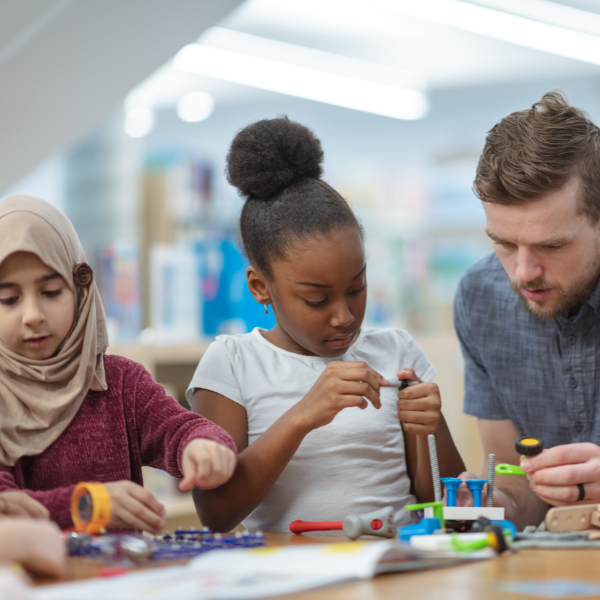
Activity – Creating a Mental Health First Aid Kit
As part of Neurodiversity Celebration Week our Making Links group created Mental Health First Aid Kits. These kits contain a selection of resources to help young people manage their mental health when life starts to feel more challenging, such as ways to distract themselves, relax or calm down, and pointers to further support. Each Mental Health First Aid Kit is unique to the young person and building a kit can help children discover what makes them feel good, and things they can try out during tougher times.
It was really important to the young people to include all of our senses in their Mental Health First Aid Kits. They also discussed the importance of being able to share how they are feeling, without having to say it (this is where the emotion cards then came into play).
The items suggested for the first aid kit by the young people in the group, described by our Emotional Wellbeing Practitioner –
-
Playdough/putty – we created our own playdough and added different scents to increase the sensory experience.
-
An emotions card – we created red and amber cards. We talked about what emotion we may feel for each of these colours and ways that other people may be able to help by writing tips on the cards. This means that if a young person does not feel they can verbalise how they are feeling, they can hand the card to a trusted adult, who will then know how they can support them.
-
Fidgets – we created our own fidgets out of lolly pop sticks, beads and pipe cleaners. The young people identified fidgets as a way to calm down if they are feeling anxious, angry etc.
-
Positive quotes – the young people highlighted that sometimes, in the moment, it can be difficult to see the positives of a situation. The positive quotes that they chose may help to improve their emotional wellbeing by giving them a focus.
-
Mints/sweets – The young people felt that having something that they could taste would be really helpful. We spoke about eating mindfully (being really present when we are eating; eating slowly; thinking about how it affects all of our senses). This is a great way to bring ourselves back into the present moment, but also as a way of distracting ourselves.
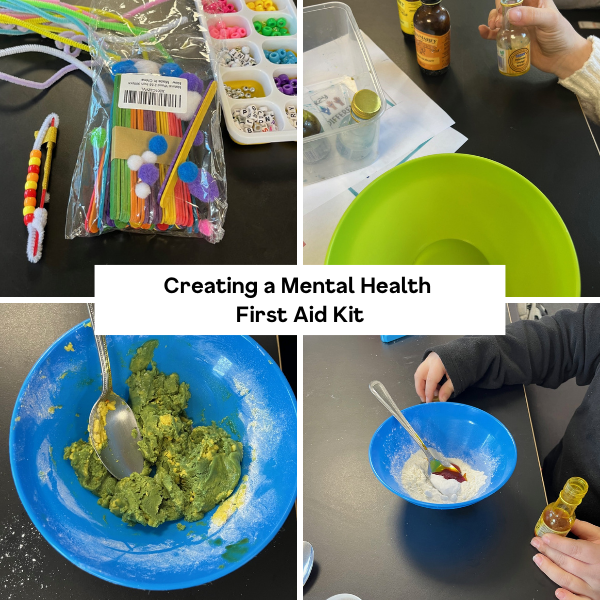
Helpful contacts
Information on Neurodiversity Celebration Week – Neurodiversity Celebration Week
Advice, support and help for children and young people with Neurodiversity Needs – Neurodevelopmental needs :: Mindworks Surrey
Mindworks Surrey provides a dedicated out of hours helpline for parents and carers of children with suspected, or diagnosed, neurodevelopmental needs such as Autism Spectrum Disorder (ASD) and Attention Deficit Hyperactivity Disorder (ADHD).
It is free to call and open from 5pm-11pm, 7 days a week. The number to call is : 0300 222 5755
Family Voice Surrey champions the needs and rights of SEND families in Surrey: families with children or young adults up to the age of 25 who have special educational needs, chronic illnesses, including mental health conditions, or disabilities – Home – Family Voice Surrey
